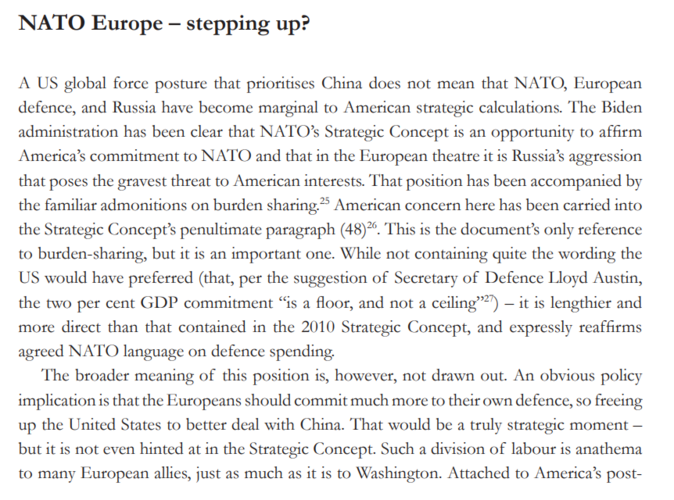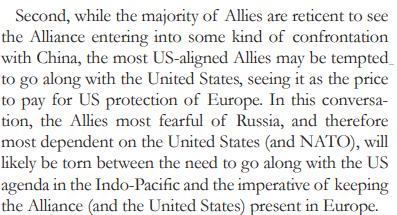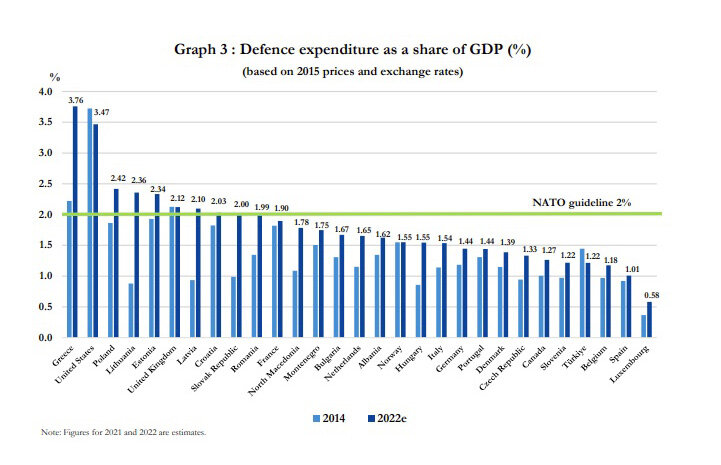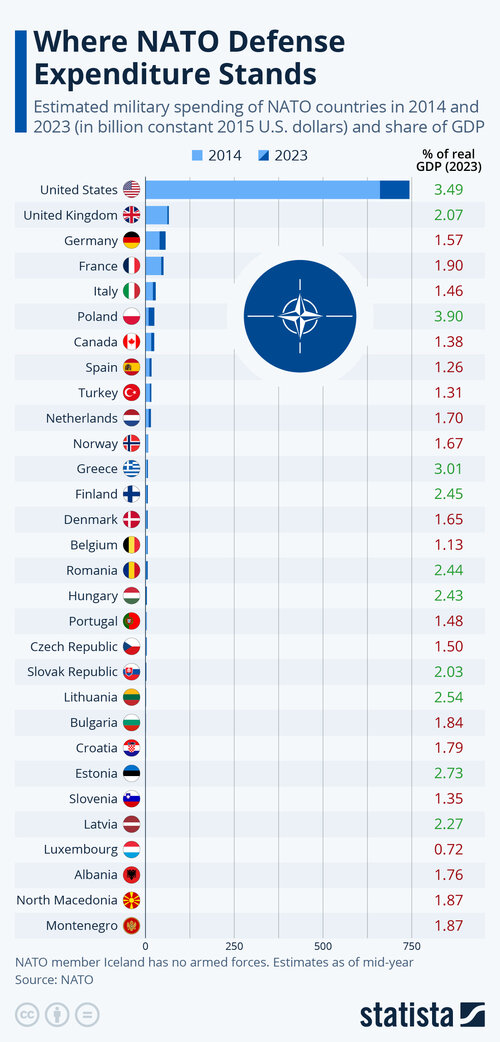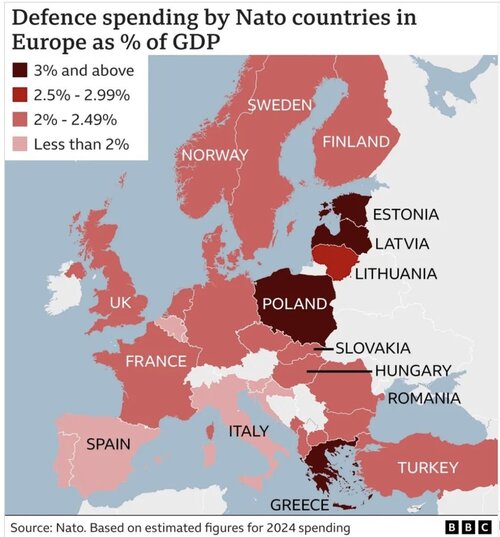Germany is not only hitting the mark of 2% (for now with Sondervermögen) but is also trying its best but you can't just snap with your fingers and change obsolete structures, modernise and replace equipment even if we have 3 times the budget.
There are ongoing difficulties with figuring out how the different national forces slot into a battle plan. Nearly three years after the start of the Ukraine war, the command and control arrangements in NATO remain flimsy, and forward-deployed forces remain relatively small. There is still no responsive layer cake, or the modern equivalent (multinational divisions are what they are gunning for, information on follow on forces or mobilization forces is very vague for either security purposes/they haven't figured that part out yet).
I'd have to read up much more on current NATO planning for their central front, but first impressions are not particularly impressive. They haven't even gotten a headquarters together for Finland, and are planning on running that front from Norfolk! It's been two years, you could fight a whole war in that time!
Money is not the only problem; indeed, if you tackled the political/operational/organizational issues, the money would be much better spent. With the changing international security landscape, it's not entirely clear what everyone's priorities are. Heck, the Trump transition team has a broad swathe of opinion internally. This is a time of great changes not seen for a century, and that's true in the Atlantic as well as the Pacific. To quote Deng Xiaoping, one must cross the river by feeling the stones.
I would need to do more reading to see what the current state of thought is. My NATO reading is most from before 1989. The BAOR is gone, the West German Corps are gone, the front line is the Bug and beyond, they're not going back to the layer cake, and they're planning on multinational divisions and hoping to dovetail/hybridize with/supersede the EU. It's a new NATO for a new era.
Thankfully NATO has a library. Also they wrote their own science fiction, NATO 2099.
(Edit: The NATO 2099 comic book is pretty bad I think, worse than MARSOC FICINT but it's perhaps worth ten seconds to skim)

